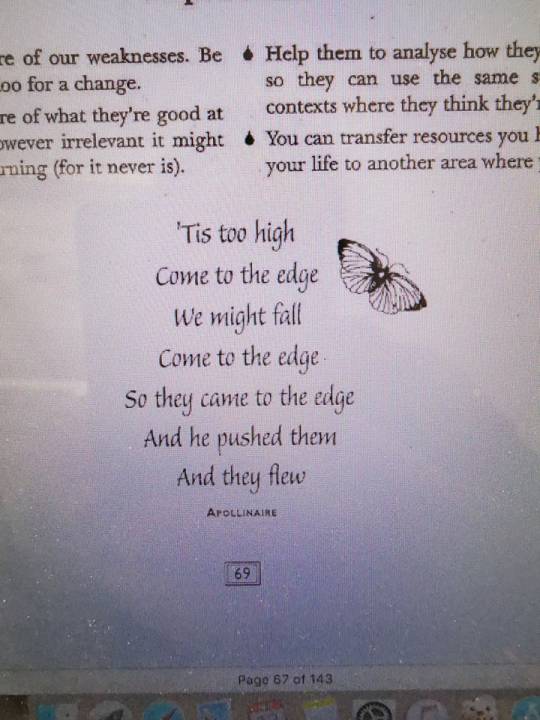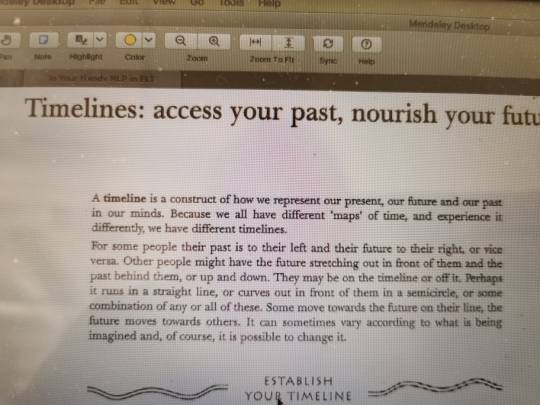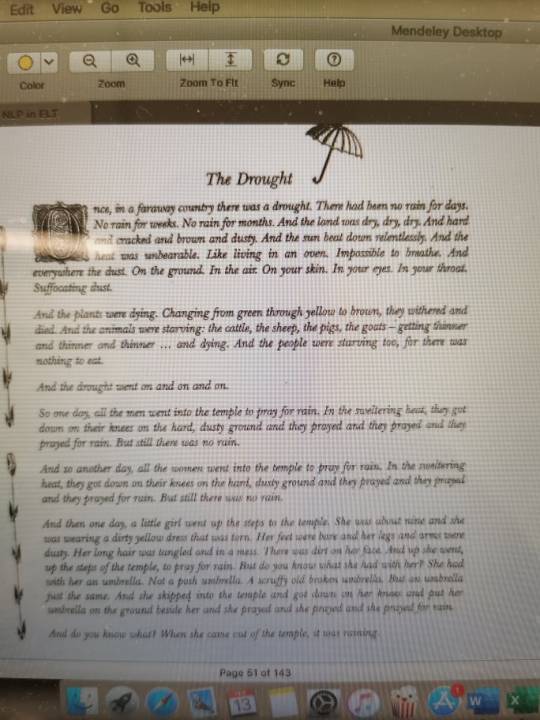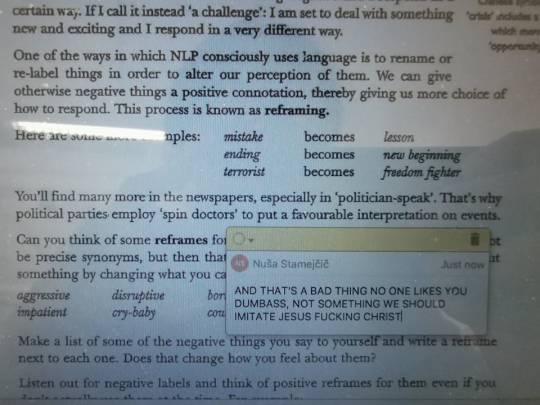#i might politely disagree with my ma i DO think its one of the best songs on the album but she doesnt need to hear that xx
Text
told my ma about the 'stranger things kate bush renaissance' aka my ma kate bush girlie of all time aka my ma has every album shes ever made aka my ma has a list of kate bush songs that must be played at her funeral that she reminds us of frequently and she's fumin btw. 'kate bush renaissance' the sheer nerve of it. 'its not even one of her best songs its not even the best song on the album why do they always pick that one' says my ma
#im sort of glad though. if it had been suspended in gaffa i wouldve had to start biting and scratching n clawing n stuff#my ma argues that hounds of love n the big sky n cloudbusting n and dream of sheep are all better on that album shes getting controversial#i might politely disagree with my ma i DO think its one of the best songs on the album but she doesnt need to hear that xx#when i got my record player she gave me all her kate bush records which was grand except theyre all ruined by the fact that#as teenagers her and her sisters were doing maths homework on the sleeves so theyre covered in workings out :-/#workings out arent even right either. theyre all wrong we're a humanities family for a reason innit#(ridi's) bigmouth strikes again
14 notes
·
View notes
Note
prompt: its a thin line between all this love and hate, for whatever ship you want ☺️
The Carbonell family and the Barnes family were two that vied for complete control over the city, and either side would do anything to the other in order to have it.
Maria Carbonell was a deceptive woman. She cared for the city deeply, but she would pull every underhanded move on the books in order to get what she wanted. She would watch houses burn down over coffee if it meant the Barnes slipped in control.
Similarly, Winnie Barnes had taken over her husband’s mantle after he died overseas, learning what needed kindness and who she needed to talk to.
Their children took to it like ducks to water.
Tony Carbonell was smart, blisteringly so. He could fix a flat tire in thirty seconds, repaired guns in half the time it took the usuals, and learned strategy from his Mama. Tony learned how to subvert expectations that others expected.
Bucky learned how to be the best shooter his side of the city and the Carbonell side, sweet-talked every single cop on duty, and knew how to use his weaknesses to his advantage.
They obviously hated each other.
And went to the same school.
They never talked, not really. Tony kept to himself and looked as far from a young, organized criminal as possible. He wore old jeans, cardigans, and had a habit of pushing up thick glass lenses set in a dark blue frame.
Bucky fit the part a tad better. Old white t-shirts, a leather jacket, and a penchant for challenging others, there wasn’t anything to the imagination. He roared in on a motorcycle, and sent glares Tony’s way any time he saw him.
Tony was unbothered. He had schoolwork to do, coffee to drink, and a rival to undermine. If Bucky wanted to glare at him and not get anything done, hell he was welcome to it.
“You need to actually do something,” Natasha tells Bucky. She’s already in with the family, dedicated to protecting others and making sure the more...unsavory things were kept out of the limelight. “Glaring at him isn’t gonna kill him.”
“Can’t do anything on school grounds, Ma forbade it.”
“Who said anything about killing him at school?” Natasha asks. “Do it elsewhere.”
“He’s gonna expect it.”
“Not if you fool him.”
Bucky isn’t an idiot. He knows that Tony will think about it. He knows that Tony won’t let his guard down. He’s a genius, everyone says so.
But hell, you gotta try. And Bucky has just the story.
Tony’s a sucker for poor cases. The ones that are the outlier, the longshot.
Bucky finds a freshman named Peter who needs a bit of encouragement, but he brings in his old, junkyard car to the Carbonell auto repair shop.
Tony immediately falls for it. He loves helping people, and Peter is no exception. Peter forgets to act, actually being the young, lovable, “take me under your wing” kind of guy.
And then Bucky walks in.
Tony doesn’t say anything, just takes Bucky aside.
“What are you doing here?!” Tony hisses. “You’re lucky no one shot you on sight, Barnes.”
“My cousin needed me to pick him up,” Bucky says.
“Peter’s your cousin?” Tony asks. He turns back to Peter, who is waving. “Bullshit.”
“Not bullshit. True. Thanks for taking care of him. I appreciate it. He’s not in this like we are.”
“Oh, so he doesn’t know that you’re part of a violent organization?”
“Like you aren’t.”
“He’s allowed here. You’re only allowed for pick-up,” Tony says, enunciating his words with a wrench bounced off of Bucky’s chest at each word. “And so help me God if you try to wreck something and I let Peter in, I’m going to make sure that I fucking destroy you.”
Part one is complete. Peter’s doing well, although he says he feels guilty.
“Tony’s nice, Bucky,” Peter says, squirming in the backseat.
“You can say that about serial killers, you think Dahmer fit the bill?” Bucky asks with a snort. “You’re helping family, Peter. Nothing more noble than that.”
-
Tony knows he’s an idiot. But Peter’s smart, and Tony knows that the Barnes family isn’t like that. They can shoot worth a damn, they can’t teach worth a damn. Peter needs someone who gets it. And he does.
What he doesn’t get is why Barnes comes to pick him up each time. He could send a driver and have common enough sense not to come over. Tony should have enough common sense to report him to his mother or someone. Maybe Rhodey.
But he doesn’t.
Because seeing Bucky Barnes smile down at his cousin, who talks a mile-a-minute, and talk a bit about how his day is going? It’s...refreshing.
This doesn’t mean anything, of course.
Tony can still go on hating Bucky and it’ll be fine. If he needs any reminders, all he has to remember is the time that Bucky had shot Tony’s knife out of his hand when he was up against Rogers.
-
As it turns out, there’s a more pressing matter to attend to.
Hydra was thought to have been thrown out out of the mix, exiled to have their tiny share in DC.
They couldn’t just stay away, and Tony and Bucky are both more than a bit stressed about what’s going to happen. Everything’s hanging on a thread.
It is when the two families meet that a solution is come up with.
“Look, we’re clearly getting nowhere trying to control one city,” Bucky starts out.
“Agreed,” Tony says. “We can pool resources and work together.” There are grumblings on either side.
“Hey,” Bucky snaps. “Either we disagree on both sides and waste resources or we work together to make sure someone worse taps out.”
“Temporary truce. We share territory, work together,” Tony says. “Team up. Sound good?”
“Fine,” Bucky says. “Just don’t get any ideas.”
“Well we know you won’t get any,” Tony remarks.
So it begins.
It’s off to a rough start when Tony finds out that Peter knew exactly what he was doing.
“Oh so you were playing the long game?” Tony asks. “Wanted to see if I would fall for your charm, Barnes?”
“That was pre-agreement, null and void,” Bucky says. “Be reasonable, sweetheart.”
“Do not sweetheart me,” Tony hisses. “You’re lucky I’m not across the table with a knife on your neck.”
“Dessert first with you?” Bucky asks, grinning. Tony whirls around, leaving the office.
Of course, they need to sell a truce. Everyone basically knows that Hydra’s looking to divide them, and it’ll be too damn easy if they both still hate each other.
Insert “team bonding.” Bucky hates it, it’s a bullshit term. But he’s facing off against Rhodes, Potts, and Banner.
“If you try to kill me I’m gonna put a fork in your knee,” Potts says off-handedly, pouring tea for herself and Banner.
“Not the worst done,” Bucky remarks. “Best you guys got?”
“Believe me after you see her with a fork, you’re gonna avoid spaghetti for a month,” Rhodes says. “A modern work of art, in some cases.”
She blushes at that. Bucky makes a note that she and Nat might get along.
They all actually...get along. Reasonably well. Enough to communicate when taking down Hydra operations on the docks, and to get shakes afterwards.
Tony’s oddly in a good mood with the company of the Barnes’, which he usually isn’t.
“We did good,” he says, stirring the strawberry shake. He has some on the corner of his mouth.
“Yeah, we did,” Bucky says. “Still more to come.”
Tony and Bucky learn more about each other over the next months. Tony doesn’t like planning in advance, and rarely follows one to a T. This annoys Steve to no end, and he threatens to bench Tony, which he actually can’t do because Tony’s essential to the missions succeeding.
“You’re gonna have to deal with it,” Bucky says, frowning.
“Since when have you defended him?” Steve asks.
“Since we’re fighting something bigger than our feud,” Bucky answers. “Now shut up and get your tux on. Sooner we can get out of it.”
If there’s one thing Bucky hates, it’s the political galas. They want to get the mayor sweetened up for some changes made in administration. There’s also the guarantee that Alexander Pierce is going to be there, and Maria and Winnie want to make sure that he’s taken care of fairly quickly.
Bucky just hates these damned suits. He hates having to be ready, dressed to the nines in shoes that squeak and his hair swept back neatly.
So of course Tony just has to show up looking sharply elegant. Dark, bloody red suit. Slight make-up. A dusty blush worked up. He looks handsome.
Fuck.
Bucky squirms with his tie.
“Who tied that?” Tony asks, zeroing in on it.
“Steve said it looked fine.”
“Literally no,” Tony swears. “I’m fixing this goddamned thing, come here.”
A.) Tony is short. Perfect height for his head to hit Bucky’s shoulders if he’s ever tired.
B.) This close....well. That’s certainly doing something.
Bucky can barely breathe, and it’s not because of the tie.
“Are you gonna come or are you just gonna stand there and rely on your looks?” Tony asks. “Because it’s not gonna work out as well as you always think it will.”
“That plan only works for you, sweetheart,” Bucky says.
And Tony doesn’t say anything about that. He takes him by the hand.
“United front and all that,” he explains. “If Pierce sees us together, it’s a stronger case for us.”
“Sure,” Bucky murmurs. “Save a couple spots on your dance card then.”
Tony blushes.
“I--sure. I will.”
#mob au#organized crime au#this went two different directions my b#lovelyirony writes#winteriron#this ask has been in my inbox for a LONG time and just now did i find something for it#so that is also my b#bucky barnes#tony stark#YES peter is still baby#peter parker
120 notes
·
View notes
Note
I've never heard of this book, but since I'm studying computational linguistics NLP is right up my alley and I'd love to read you rant about it!
This will mostly be the slightly edited essay =D it’s also kinda long so follow the cut =D but first a disclaimer: i think i’m about at least 85% wrong about all of this
Okay so here’s the thing: I don’t outright hate NLP, but I don’t like its application in the classroom, especially how they described it in the book. This book was not part of my obligatory readings (it was elective obligatory, i could pick between like 5 books) and I chose this one specifically because I wanted to be proven wrong? I wanted to get why and how to use the thing in the classroom and I remain unconvinced.
So, I am a complete cynic who does not believe in any of these new-agey, crystal loving, self-actualization movements. I generally don’t even really believe in motivation: people mostly just do things because they have to and imagining we can cause an outside force that would make people genuinely interested in a tedious activity is just presumptuous. But still, motivation is at least somewhat warranted by explaining to people why they need to do something, rationalizing the activity to them, so they are more likely to do it.

But I’m deffo not a radical. I know I am probably mostly wrong about most things and too cynical about the others, so I mostly ignore my opinions. If meditation works for you, that’s great; I just don’t see the point of it for me. I am more than willing to admit I’m wrong, so I picked up this book skeptical but with a very open mind, excited to learn why and how I was wrong. After reading this book, I can tell you that my mind is now firmly closed. To put it in a metaphor (which I’ve been thinking for well over a week on how to turn it at least vaguely academic but, alas, I cannot): I am a very salt-of-the-earth Midwestern type of a person, and this book is the most LA thing I have ever read in my life (having it end with a Marianne Williamson quote is just the cherry on top of everything).
This is not to say that I don’t find anything in the book to be of any value or that I disagree with everything, not at all. What I do think is that when you read everything, the general concept of the book boils down to be a decent human to your students and acknowledge that they are individuals, not an amorphous mass. I don’t think this is too radical a claim, nor that anyone would really go against it, so I do not quite know why it requires more than one book on it. What I took away from this book is that if you see a student is helped by fidgeting, let them do that. If you see that a student takes different notes than others, but the notes seem to really work for them - let them do that. I think some rules in schools are entirely too restrictive and can be actually damaging to learning, so I think it’s time that teachers get over themselves and let students do things that help them learn. I include myself in this: for example, I hate puppets with a burning passion, but I use them with young learners because they work. So if I see that a student could be helped by this NLP method, even if I deeply and passionately hate it, I think we still should try. But, if we strive for authenticity in teaching, I do not want to lead with this method because I am truly and honestly not the person who this book tries to make me be.

Okay, with this general rant over, let me get into specifics why I did not like this book.
First of all, just the general structure is very weird. The language is very non-academic, and the book reads very much like a self-help book more than something at least vaguely academic. I have my own problems and rants about the inaccessibility and limitations of academic language and writing. However, there is still a line you have to walk to be a useful guide for teachers, and this book just doesn’t do that. The stories that are meant as lead-ins for topics break the flow entirely and usually leave you with more questions than answers.

What I hate most is the chapter titled “Changing words, changing minds” (49-50). With the caveat that my MA thesis is literally about persuasion in political discourse, so I clearly think language can be used to persuade people; this chapter is just pure and total manipulation and they mask it as SOMETHING POSITIVE. I cannot believe that it marks “reframing” (49) as something positive, which should be imitated, not something that’s actually frowned upon and what people usually mock. Language should be precise, or it should not exist. Especially in the classroom. I would rather know that my answer is wrong so I can get it right next time; than be told: “This might be the suboptimal choice.” And you have to realize that my self-confidence is not the best, and I still clearly remember every time any teacher or figure of authority told me something I said/did was wrong. Still, I would rather have that “traumatic” memories than be coddled and live, not knowing I make the same constant mistakes. Sometimes negative reinforcement works better than positive - which brings me to logical fallacies they make in this book. Mistakes are the best teachers (48), they claim, yet we cannot point to those mistakes. Language should be precise (65) but reframe every negative thought you have.

To end on a more positive note: I did like that they offered activities even though I mostly didn’t like them. That made the book less abstract and, therefore, more useful for people who can buy into the method (which again, I’m not religiously against the technique, it’s just not something I would willingly use). Most of the activities seem such that they could very easily backfire. I can just imagine the sports class I taught last year during my teaching practice laughing when you come in with a guided meditation. Any legitimate benefit it might have, immediately lost. I would just once again like to reaffirm that even though this reflection is very negative, I can see the value of the method, but it really just boils down to be kind to people and view them as individuals, and I feel like that does not require a full philosophy. I did find a copy of another book by the authors in a language school where I teach, so I might also check out that one to see if that one convinces me, because again: I do believe i’m like 85% wrong here.
#the book is on libgen go check it out#i'm sorry but using activities where the students move is WAAAAAY more benefitial#than saying to them 'don't get cold feet' instead of 'don't fear this'
1 note
·
View note